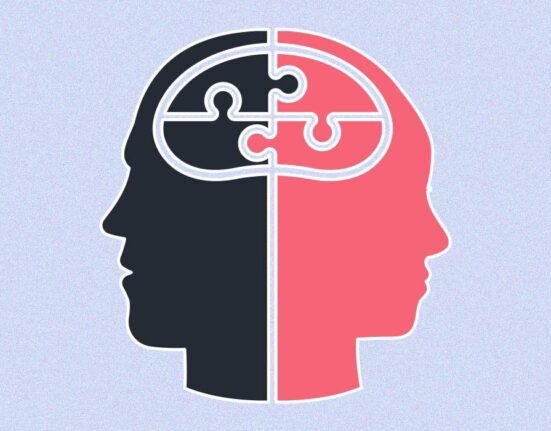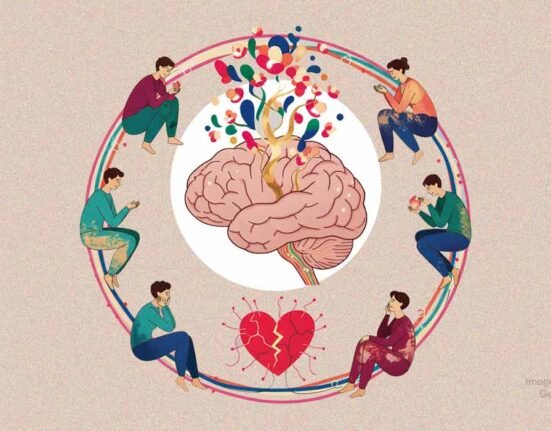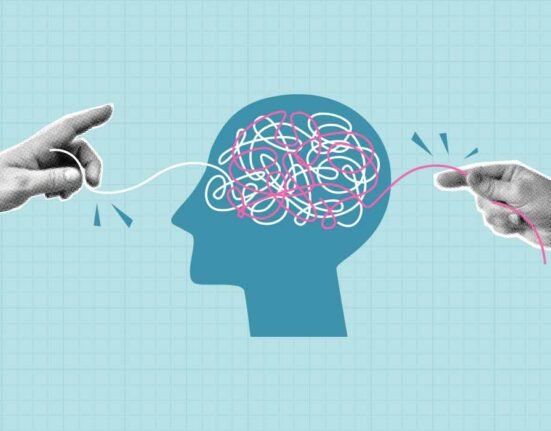When Rahim finally decided to see a therapist, he made sure the therapist had the best degrees, good reviews, and more than 5 years of experience. But after a few sessions, he didn’t feel right. Despite qualifications, he didn’t feel heard or understood. That’s when he realised that being a good therapist is about more than having practical knowledge, than just having degrees.” The effectiveness of therapy often depends not only on professional training skills but also on learning human qualities like empathy, active listening, and trust toward people. Being a therapist doesn’t require years of experience; it’s all about applying the knowledge in a good way and getting results.
Read More: Can One Be Friends with their Therapist?: Psychologist Speaks
Confusion between a Psychologist and a Psychotherapist
Many of them have confusion between a Psychologist and a psychotherapist. Are they the same? Or do they have a difference?
A psychotherapist is an individual who has gained enough professional experience in a particular field of psychology. Once they completed the Master of Philosophy in clinical psychology (M.Phil. Clinical Psy), now called as M.A. in Clinical Psychology, from 2026 onwards are called as psychotherapists; also called as “ therapist and talk therapist”. If your friend experiences any kind of disturbances, he/ she may visit a therapist and get their problem solved. They allow people to speak freely helps in reducing the levels of anxiety, depression and many other disorders.
Key roles of a psychotherapist are: providing guidance and support to individuals with problems, engaging in healthy communication with the client, helping client in improving their mindset and also encouraging clients to make few changes in the life by behavioural contract( where both the client and the therapist gets involved and work towards the goal) (Dandekar,2021)
And on the other hand, a Psychologist, a trained professional, to help people learn new and healthy ways to overcome their mental health issues. For instance, an anxious individual receives a healthy and productive way to lower their levels of it through a psychologist. Which eventually helps them in creating a peaceful life. There are many types of psychologist, namely: counselling psychologist, criminal psychologist, clinical psychologist, educational psychologist, industrial psychologist and so many more. They play a crucial role in their field and improving the minds of the individuals.
Key roles of a psychologist are: Identifying and making changes in the behavioural and emotional patterns, Diagnosing disorders by DSM-5 criteria, Making referrals so that it is easy for the individual to get proper treatment and Coming up with required treatment plans. (King, 2024)
Read More: 12 Branches of Psychology
More Than a License: The Human Side of Therapy
A good therapist is someone who has the right qualification, and more than that, they have the above to blend the theories into applying them. “ This is not just about getting a license to show you are a Psychologist, it’s about your skills that show you as a psychologist.” Here are 7 qualities of a good therapist should have, they are :
1. Building Trust and Rapport
It is very important for the therapist should create a good rapport with the client, which helps in the therapeutic process. The core values given by Carl Rogers in 1947 are empathy, genuineness, and unconditional positive regard should be given to the client. This help to create an effective and successful therapy.
2. Being open-minded
A good therapist should have the skill to listen to others actively, be open-minded, and show a non-judgmental look. These three qualities make a therapist in understanding the client and providing new approaches in achieving their goals.
3. Inquiring with Compassion (Heart of Psychotherapy)
It is a process of knowing the root cause of the client’s problem through the therapist’s curiosity, kindness, and compassion. It is more likely related to “self-discovery”, where it allows the client to discover their problems and give a solution.
4. Taking responsibility
The therapist should take responsibility for their actions and progress in developing awareness in the client and hold them to their life responsibility. The therapist uses the technique called “cognitive appraisal “ by encouraging them to challenge their negative thoughts and indulge in positive ones.
Read More: Life of a Psychologist: Career, Challenges and Responsibility
5. Being Flexible and Trying New Approaches
They can easily adapt and be flexible between different therapy processes. When the approach is not working, they try something new and don’t hesitate.
6. Prioritising Individual Needs
A therapist doesn’t prioritise their relationship; they prioritise their clients’ needs and goals. For instance, helping the client’s Relationship, family towards their goal (peace).
7. Self-awareness
The important skill of a therapist is self-awareness, that is, being mentally present in the situation. This skill helps in understanding themselves, recognising their flaws, and prevents them from imposing on clients. (7 Qualities of a Great Therapist, n.d.)
Final decision
We can say that being a licensed therapist by a degree or certificate courses, internship and all, doesn’t mean you are knowledgeable, experienced and can handle anything. Being a therapist is far beyond these qualifications. It’s all about learning in-depth, and having enough experiences in that field. But having a basic education is essential and one of the major & basic steps in becoming a therapist. Along with those skills, practical knowledge and experience are equally important, so to become the backbone of a person, we need to have more practical exposure than theoretical knowledge.
Read More: The Psychologist’s Role: A Guide, Not an Advice-Giver — A Clinical and Ethical View
Conclusion
To become a reliable and supportive therapist in the society, one must strike balance between theoretical knowledge and practical experience. Basic education provides a necessary foundation, but it is the skills, the experience, and dedication that truly make you a good therapist.
FAQs
1. What is the common difference between a therapist and a psychologist?
The major key Differences are in terms of Education, focus and scope of practice:
- Education: Psychologists typically hold a doctoral degree, while therapists have a master’s or doctoral degree from various fields(clinical).
- Scope of Practice: Both of them are trained professionals to diagnose and treat mental health Disorders, while therapists mainly focus on providing talk therapy and support.
- Focus: A Psychologist may focus on research and assessment, while therapists mostly focus on providing therapy services to the client.
2. Who are called as good therapist?
A good therapist is someone who has the right qualifications and experience in the field, and helps in treating the individual lead a good life.
3. What are the 7skills of a good therapist?
The 7skills of a good therapist are- trust, open-mindedness, being responsible, creativity, inquiry, self-awareness and individual needs.
4. What are the other types of roles psychologist does?
The other types of roles psychologists do are clinical, counselling, educational, neuro, forensic, criminal psychologist and more.
5. What is the most important skill a therapist should have?
The most important skill a therapist should have is “ RAPPORT BUILDING “ because it helps in gathering information and provides a way to achieve the goal more easily.
Reference +
7 Qualities of a great therapist. (n.d.). Psychology Today. https://www.psychologytoday.com/us/articles/202211/7-qualities-of-a-great-therapist
King, L. M., PhD. (2024b, September 18). What is a psychologist? WebMD. https://www.webmd.com/a-to-z-guides/what-is-psychologist
Dr Ajit Dandekar (2021). Differences Between a Psychotherapist and a Psychologist https://www.nanavatimaxhospital.org/blogs/differences-between-a-psychotherapist-and-a-psychologist













Leave feedback about this